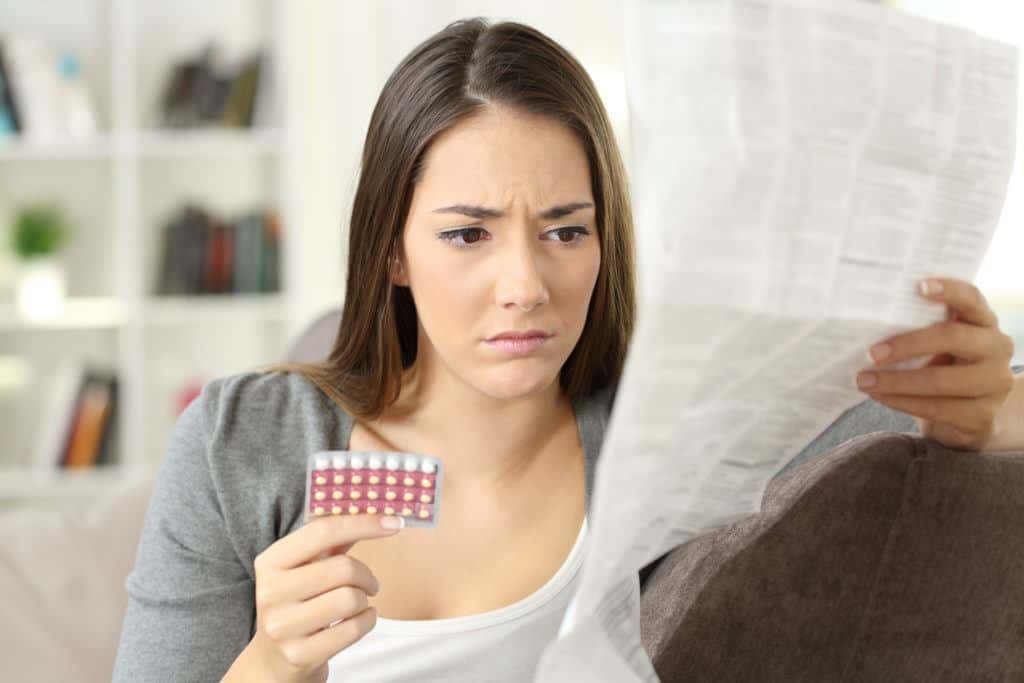Depression Among Women on Oral Contraceptives
If you’ve been feeling blue lately, you may want to think twice before refilling your birth control prescription. New research published in the journal JAMA Psychiatry suggests that all types of hormonal contraception come with an increased risk of depression.
A 14-year, nationwide study looked at one million women between the ages of 15 and 34 living in Denmark and found that women using hormonal birth control were more likely to be diagnosed with depression and taking antidepressant medications. In the study, the incidence of depression and the first use of an antidepressant was more prevalent among hormonal birth control users than women who used non-hormonal forms of contraception after six months, with the highest rates of depression among adolescents aged 15 to 19.
Users of combined oral birth control pills—the ones most commonly prescribed, which contain estrogen and a progestin—had a 1.2-fold higher rate of antidepressant use than those not taking the pill. The rates were even higher among women who used progestin-only birth control pills, the vaginal ring, the patch, and the Mirena IUD.
Hormonal Birth Control Is Commonly Prescribed—and Not Just for Contraception
These new findings are significant given that the most widely used method of contraception among women in America is hormonal birth control, according to the National Center for Health Statistics. Among women aged 15 to 44, 16% use the pill, 9.4% use condoms, 7.2% use an IUD or other implant, and 4.4% use Depo-Provera, a patch, or a vaginal ring.
And while birth control pills can be safe, effective, and have health benefits; doctors often prescribe them for common hormonal disorders and conditions, such as endometriosis, polycystic ovarian syndrome, pelvic inflammatory disease, heavy menstrual bleeding, absent or irregular periods, and even pre-menstrual syndrome (PMS) and acne. Hormonal birth control is a type of conventional hormone replacement therapy that stops a woman’s normal cycle by keeping estrogen higher than normal using a progestin, which is an artificial form of progesterone. This effectively stops ovulation as well as natural hormone fluctuations. Synthetic progestins have been linked to depression, but other treatments are available such as bioidentical hormone progesterone which can help manage symptoms like mood swings and PMS symptoms.
Women are often given these drugs during their adolescence to alleviate symptoms, and unfortunately, many doctors reflexively prescribe them for conditions that could be managed effectively with diet and lifestyle changes. In light of the new findings showing how vulnerable teen women—as well as women in their 20s and 30s—are to depression while on hormonal contraception, safer and more effective options must be explored. Bioidentical hormone replacement therapy is a natural alternative to help find relief from hormonal symptoms, but it is not a means of preventing pregnancy.
Experts in Hormonal Balance Can Get to the Root of Your Symptoms and Relieve Your Depression
When a woman is experiencing difficult hormonal symptoms at any age, it’s almost always a sign of an underlying dysfunction of the endocrine system that needs to be addressed rather than masked with a medication. Targeted nutrition therapy, avoidance of xenoestrogens (chemicals that mimic estrogen in the body—found in pesticides, plastics, personal care products, and household cleaning items), and bioidentical hormone replacement therapy can optimize your hormonal health and improve your quality of life.
If you or a loved one is taking hormonal birth control for a chronic health condition, suffering from depression while on hormonal birth control, or having hormonal symptoms and simply looking to avoid these drugs, an integrative medicine physician who specializes in hormone therapy can help you get to the root cause of your imbalances and start feeling better fast. Contact a physician within the BodyLogicMD network today and discover the benefits of personalized care.
